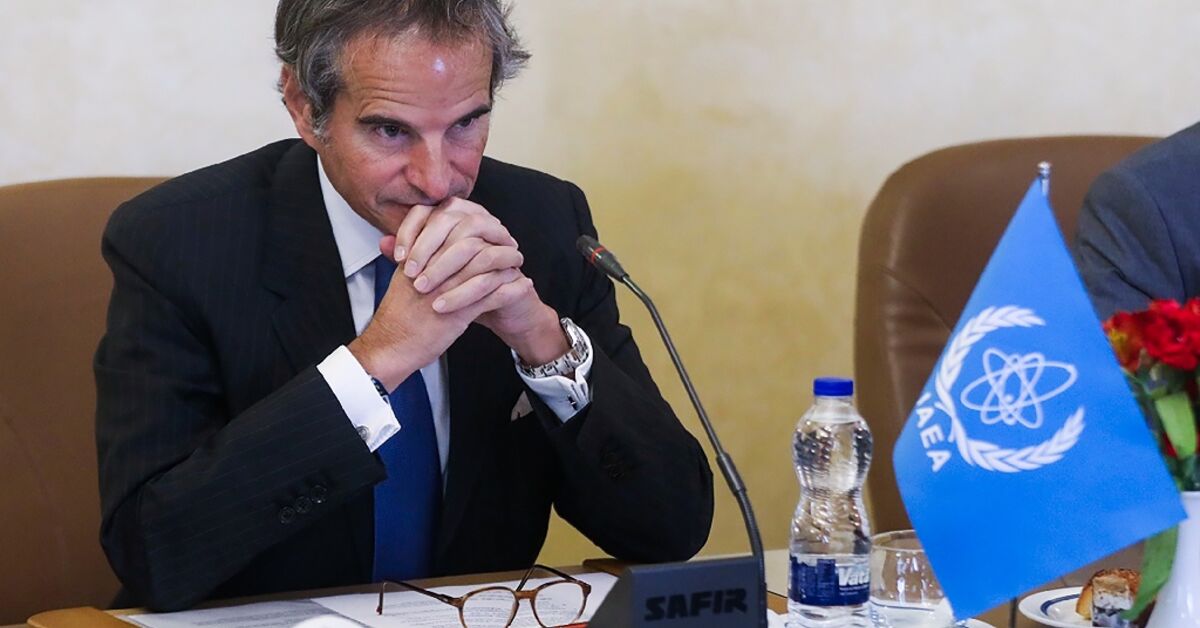UN atomic watchdog chief Rafael Grossi, visiting Iran on Tuesday, urged the country to adopt “concrete” measures to bolster cooperation on its nuclear programme and address the international community’s concerns.
At a news conference in the city of Isfahan, Grossi said he had proposed in talks with Iranian officials that they “focus on the very concrete, very practical and tangible measures that can be implemented in order to accelerate” cooperation.
The International Atomic Energy Agency director-general held talks with senior Iranian officials including Atomic Energy Organization’s head Mohammad Eslami.
Grossi insisted on the need to “settle differences” on the nuclear issue while the Middle East was going through “difficult times”, particularly with the war between Israel and the Iran-backed Palestinian militant group Hamas in the Gaza Strip.
“Sometimes, political conditions pose obstacles to full-fledged cooperation” between Iran and the international community, he said.
To overcome these obstacles, he said, “we need to come up with concrete steps that are going to be helpful in bringing us closer to these solutions that we all need”.
Grossi said a March 2023 deal with Iran was “still valid” but required more “substance”.
The agreement was reached during Grossi’s last visit to Iran and outlined basic cooperation measures including on safeguards and monitoring.
The IAEA chief said, however, that there had been a “slowdown” in the agreement’s implementation including the number of inspections being reduced and the accreditation of a group of IAEA experts being withdrawn by Iran.
– ‘Legal right’ –
Iran suspended its compliance with caps on nuclear activities set by a landmark 2015 deal with major powers a year after the United States in 2018 unilaterally withdrew from the agreement and reimposed sweeping sanctions.
“We have this legal right to reduce our commitments when the other parties do not adhere to their obligations,” Eslami said during the joint news conference.
Tensions between Iran and the IAEA have repeatedly flared since the deal fell apart, and EU-mediated efforts have so far failed both to bring Washington back on board and to get Tehran to again comply with the terms of the accord.
The agency has in recent months criticised Iran for a lack of cooperation on issues including the expansion of its nuclear work, the barring of inspectors and deactivating the agency’s monitoring devices at its nuclear facilities.
In February, it said in a confidential report seen by AFP that Iran’s estimated stockpile of enriched uranium had reached 27 times the limit set out in the 2015 accord known as the Joint Comprehensive Plan of Action, or JCPOA.
Last year, Iran slowed the pace of its uranium enrichment, which was seen as a goodwill gesture while informal talks began with the United States.
But Iran then accelerated the production of 60 percent enriched uranium in late 2023, according to the IAEA.
Enrichment levels of around 90 percent are required for military use.
Iran has always denied any ambition to develop a nuclear weapons capability, insisting its activities are entirely peaceful.
– ‘Hostile actions’ –
At the news conference, Eslami said the talks with Grossi were “constructive” and agreed that the 2023 deal was a “good basis for interactions” between Iran and the agency.
He did not go into technical details, particularly regarding concerns expressed by the IAEA about traces of uranium discovered at two undeclared sites, Turquzabad and Varamin.
The Iranian official, however, affirmed his country’s desire to strengthen its collaboration with the IAEA within the framework of the UN Treaty on the Non-Proliferation of Nuclear Weapons.
Eslami denounced “hostile actions against the nuclear programme of the Islamic republic”, in particular blaming Israel, Tehran’s sworn enemy.
In response, Grossi said relations between the IAEA and Iran were not influenced by “external parties”.
The three-day nuclear conference is being held in Isfahan province, home to the Natanz uranium enrichment plant and where strikes attributed to Israel hit last month, triggering an expression of concern by Grossi.


